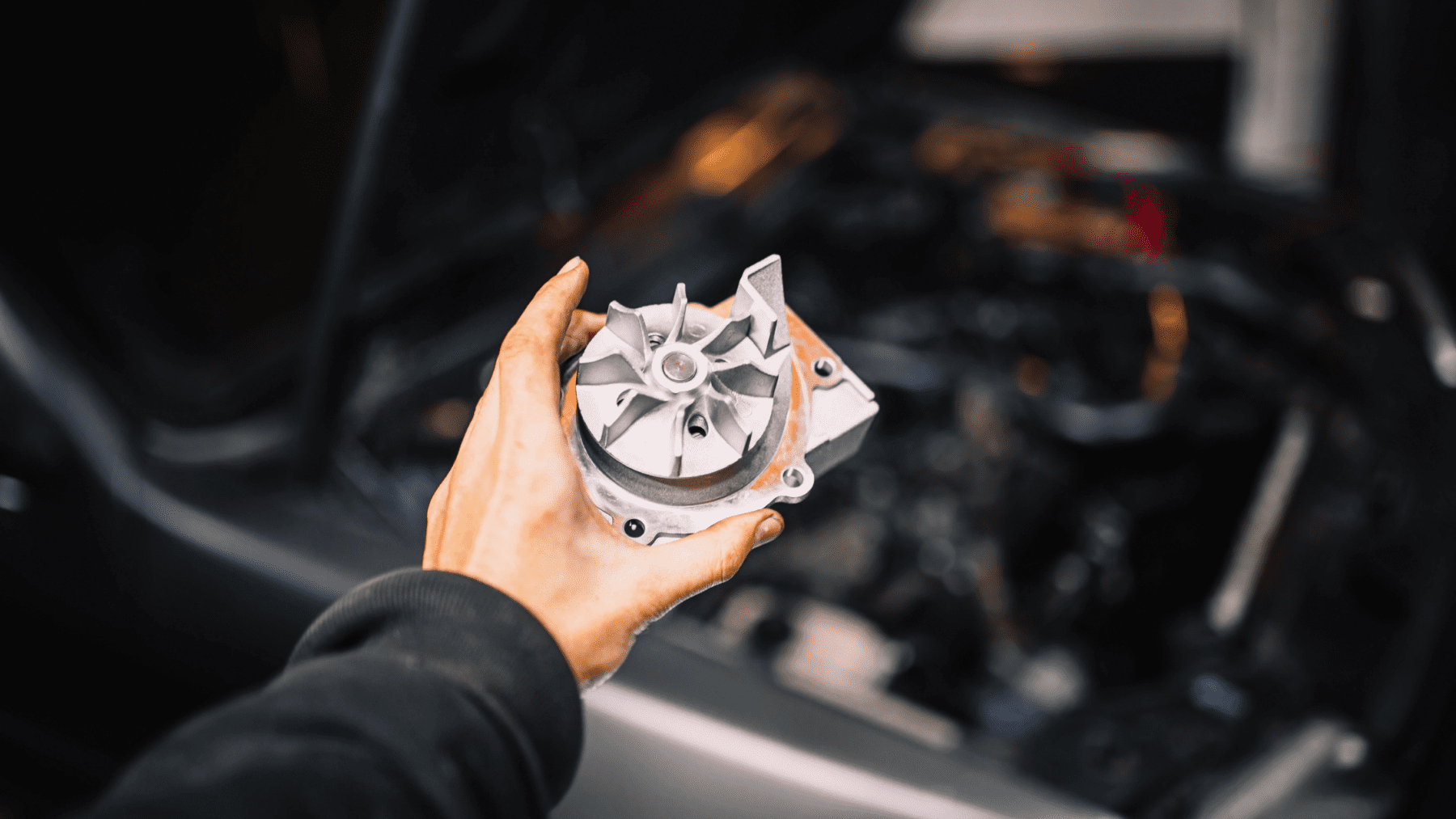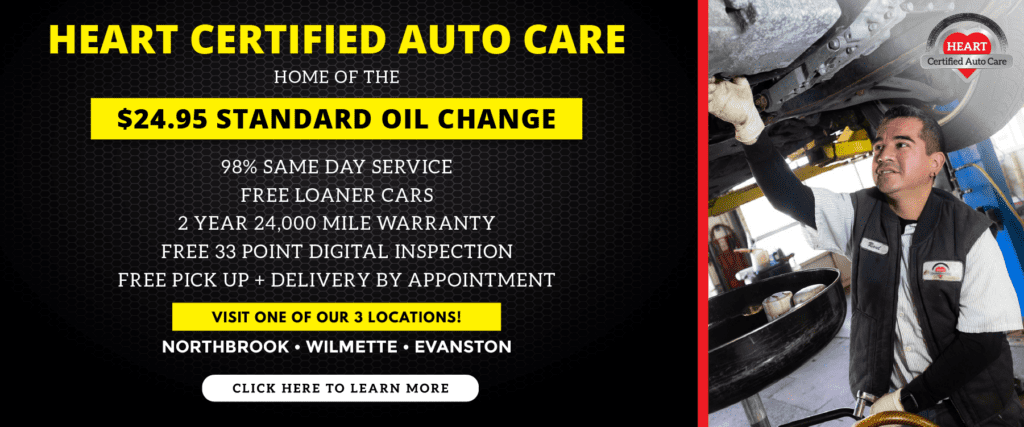A Comprehensive Guide to Water Pump Replacement

Your vehicle is a complex machine made up of numerous parts working in harmony to ensure a smooth and safe drive. One such crucial component is the water pump, a silent soldier that plays an instrumental role in keeping the engine cool.
In this guide, we’ll provide a comprehensive overview of water pump replacement and why it’s an essential aspect of vehicle maintenance.
Understanding Water Pumps

A water pump, often an overlooked part of your vehicle, is responsible for circulating coolant through the engine block, radiator, and heating system. This circulation helps maintain the ideal temperature, preventing your engine from overheating and ensuring optimal performance.
There are primarily two types of water pumps – mechanical and electric.
- Mechanical water pumps, generally found in older models of vehicles, are driven by the engine via a belt.
- On the other hand, electric water pumps are powered by the vehicle’s electrical system and are common in modern vehicles due to their efficiency and control.
Signs That You Need a Water Pump Replacement
- Overheating Engine: If your engine frequently overheats, it might be due to a failing water pump.
- Coolant Leaks: Puddles of coolant under your car indicate a possible water pump issue.
- Whining or Grinding Noises: These noises from the front of your engine could signify a water pump-bearing problem.
- Steam from the Radiator: Steam emerging from your radiator is a sign of an overheating engine, often linked to water pump failure.
- Rust or Corrosion: If you notice rust or corrosion on the water pump, it’s a clear sign that it needs replacement.
- High Mileage: If your vehicle has logged many miles, the water pump may be wearing out.
- Frequent Refills Required: If you find yourself constantly refilling the coolant reservoir, this could indicate a water pump problem.
- Engine Temperature Fluctuations: Rapid changes in engine temperature can be a sign of water pump issues.
- Coolant Color Change: If the coolant color changes to a rusty or oily appearance, it may be due to a failing water pump.
- Visible Pump Damage: Any visible cracks, leaks or damage to the water pump itself are sure signs of a need for replacement.

The Water Pump Replacement Process
- Drain the Coolant: The first step involves draining the coolant from your vehicle.
- Remove the Serpentine Belt: Next, remove the serpentine belt that connects the water pump to the engine.
- Unbolt the Water Pump: After removing the belt, unbolt the water pump from the engine block.
- Install the New Water Pump: Now, you can install the new water pump and secure it with bolts.
- Reinstall the Serpentine Belt and Refill the Coolant: Finally, reinstall the serpentine belt and refill the coolant.

DIY Water Pump Replacement vs Professional Services
Replacing a water pump yourself has advantages, such as saving on labor costs. However, it also comes with risks. If not done correctly, it could lead to more significant issues and cost you more in the long run.
On the other hand, hiring a professional for a water pump replacement ensures the job is done correctly and efficiently. Professionals have the right tools and experience to handle any unexpected issues that may arise during the process.
Deciding between DIY and professional services for water pump replacement largely depends on your level of expertise and comfort with automobile maintenance. If you’re familiar with vehicle parts, have the necessary tools, and understand the process, replacing the water pump yourself could be a feasible option. It allows you to save on labor costs and gain hands-on experience.
However, if you’re not confident in your abilities or lack the necessary tools, it’s best to hire a professional. A trained mechanic has the knowledge and experience to handle the job efficiently and correctly. They can diagnose any additional issues and take care of them right away, preventing further damage and costly repairs down the line. Plus, professional services often come with warranties, providing you extra peace of mind.
Remember, while saving money is important, ensuring your vehicle’s longevity and safety should always be the priority.
Cost Breakdown of Water Pump Replacement
The cost of replacing a water pump can vary based on several factors, including the type of vehicle, the type of pump, and whether you opt for a DIY or professional service.
On average, for professional services, you can expect to pay between $300 to $1,000, with the cost including both parts and labor. If you opt for a DIY replacement, you could save on labor costs, but the price of the pump itself could range anywhere from $50 to $200 depending on the model. Keep in mind that while DIY seems cheaper initially, if not executed properly, it could result in further damages and costs.
Tips to Extend the Lifespan of Your Water Pump
- Regularly check for leaks and address them promptly.
- Use high-quality coolant and ensure it’s at the right level.
- Replace the serpentine belt and timing belt as recommended by the vehicle manufacturer.
- Regularly service your vehicle to detect any early signs of water pump failure.
- Regularly flush and refill your coolant system to keep it clean.
- Maintain proper engine temperature to avoid overheating.
- Inspect the water pump for any signs of wear, rust, or corrosion.
- Ensure regular servicing of your vehicle by a professional mechanic.
- Avoid driving in extreme temperatures as much as possible.
Signs Your Water Pump May Need Replacement
- Coolant Leak: One of the most common signs is a leak at the front center of your car.
- Overheating Engine: If your water pump isn’t working, the coolant won’t circulate properly, causing the engine to overheat.
- Whining Sounds: A loose water pump pulley can cause a whining sound.
- Steam from Radiator: Steam emanating from your radiator is a sign of an overheating engine, which could be due to water pump failure.
- Radiator Hose Problems: If there’s an issue with the radiator hose, it could be due to a problem with the water pump.
- Erratic Temperature Gauge: If the temperature gauge on your dashboard is fluctuating erratically, it may indicate a failing water pump.
- Coolant Color Change: If the coolant in your car changes to a rusty or oily color, this could be a sign of water pump failure.
- Decreased Fuel Efficiency: A malfunctioning water pump can lead to decreased fuel efficiency.
- Vibrations: If you feel unusual vibrations while driving, it could be due to a faulty water pump.
How to Choose a Reliable Mechanic for Water Pump Replacement
- Check Reviews: Look at online reviews and ratings.
- Ask for Recommendations: Ask friends and family for their recommendations.
- Compare Quotes: Get quotes from different mechanics to ensure you’re getting a fair price.
- Check Certifications: Ensure the mechanic has the necessary certifications and training.

Conclusion: The Importance of Timely Water Pump Replacement
Ignoring the signs of a failing water pump can lead to severe engine damage, so timely replacement is crucial. Whether you choose to replace the water pump yourself or hire a professional, understanding the process, costs involved, and the importance of this component can save you time, money, and potential headaches down the line.
If you suspect your vehicle needs a water pump replacement, don’t delay. It’s important to know that the key to a healthy vehicle lies in preventative maintenance and addressing issues before they escalate. Trust your vehicle to us at HEART Auto Care, where we specialize in comprehensive auto services, including water pump replacements. If there’s a possibility of a failing water pump, bring your car to our expert team – we’re dedicated to ensuring your safety and getting you back on the road as quickly as possible.
If you found this guide helpful, please consider sharing it with others. And remember, if you suspect your water pump needs a replacement, take action immediately. Stay informed, stay safe on the road!








